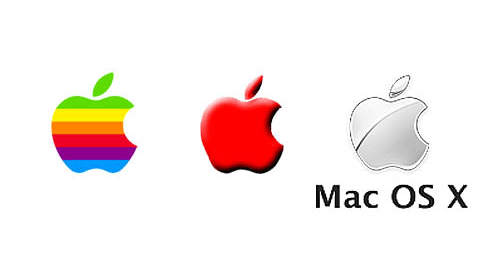
A while ago I posted about giving people more confusing (ie interesting) marketing that wasn’t quite so obvious and straightforward.
Over the weekend I was reading over on Gareth Kay’s blog (http://garethkay.typepad.com/brand_new/) some posts about Lost (btw I love the ads they've been running in their breaks for their own fictional darhma initiative and related websites) and the depth or lack there of in most marketing which made me think on it more.
You know the basic thinking – add more layers of complexity as opposed to simple short message etc. It’s not that it is a new idea, but I think it is often still seen as being in opposition to the “Big Idea” school of thinking.
But I’ve never been convinced by that separation. 


For easy instance: Honda (UK) and Apple have to a good extent both stuck to a big central idea, but executed in many different ways, with reasonable depth. It’s not the matching-luggage-set interpretation of a big idea where everything looks and feels exactly the same thing, but you definitely have an organizing idea. [Obviously these are still relatively simple examples compared with the kind of rich texture lots of us are aiming for in the future, but you get the point]
Basically it’s all just about the difference between a simple idea “washes whiter” and a simple idea with depth-potential “think different”. (On a side note:- I’m still waiting to see if the new VW work manages to pull it’s differing part together to any kind of uniting brand thought or not… at the moment it’s not doing it for me, anyone got a different perspective? – maybe I haven’t seen enough of it yet…)
So, to my current beef related to this –
The implications for efficacy metrics, and so research. To bite off a small chunk of this - We often see our ideas judged both by management and by research on what I’d call a campaign-centric basis… ie the question “does this fit my brand” is primarily based on executional clothing, or in research effort is put into asking how people feel about an ad. What SHOULD imho be happening is that the question is truly centered around the brand, not the campaign. This has always been true, but is even more true if we want the rich-texture depth kind of stuff we’re talking about.
Specific example: the whole brand linkage issue – While I’m quite happy to concede that it may be a reasonable proxy to success, but it is not a solid metric of success. It’s always amazed me that people put so much stock in whether an ad can be remembered as being for their brand (unprompted recall)…. As a business they shouldn’t care. They should care that seeing the ad changed the impressions and feelings held about their brand. But you can only really know that by probing about the brand.
Case in point David Letterman. I can’t tell you any of his jokes. I can’t tell you what I last heard him say, or when. (Most pretests &.post tests would discard the efficacy of his marketing on me already at this point) I can’t tell you his mum’s name either (though I am aware of her). In fact about the only specific thing I can tell you is that he has that bad habit of wearing bright white ‘sport’ socks with dark suits and shoes.... HOWEVER I have a pretty solid and well rounded sense of what he’s like, how much I like him and what I feel about him, his general politics, and whether I’d rather watch him than Jay or Conan. So, should research in to Dave Letterman see if I remember the jokes from his last trailer, and or even see if I recognize and can match the jokes to him? Or should it ask me about what I think of him? And see how that is different depending on what I’ve been exposed to?
This gets us towards a whole longer discussion on control cells / pre-posts, sample sizes big enough to break down exposure to different communications etc ….. and I’ve rambled on quite long enough.
Sufficed to say I think that the more we look to try and emulate complexity-rich culture in our work, the more I think we need to do two things better:
1 - Make sure we really have a meaningful simple organizing idea at the centre to give the complexity an anchor (duh!)
2- Call foul more often on simplistic vehicle-centric (eg ad centric), rather than brand centric ways research and metrics of success.
PS.
3 - be surprised and more thankful that the mainstream ‘low brow’ TV of today is lightyears ahead of what used to pass for ‘prime’-time TV, and it makes an easy case that brands need to do likewise. (Several books and articles recently have talked about how mass media has dumbed-up rather dramatically in the last couple of decades.)
Share ideas that inspire. FALLON PLANNERS (and co-conspirators) are freely invited to post trends, commentary, obscure ephemera and insightful rants regarding the experience of branding.
Monday, May 15, 2006
Confusion Revisited – Giving more depth to brands
Subscribe to:
Post Comments (Atom)


2 comments:
Great site loved it alot, will come back and visit again.
»
Really amazing! Useful information. All the best.
»
Post a Comment